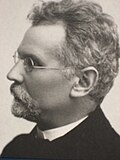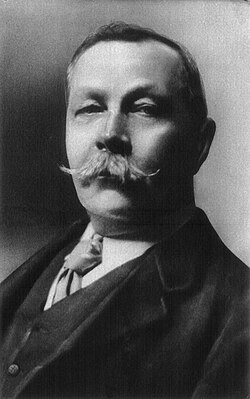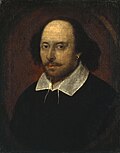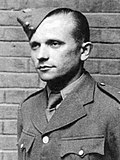Novels






- Alexandre Dumas, père, The Black Tulip (1850) – historical novel which features the assassination of Johan and Cornelis de Witt
- Bolesław Prus, Pharaoh (1895)
- Henryk Sienkiewicz, Quo Vadis: A Tale of the Time of Nero (1895) – historical novel about SS. Peter and Paul, [4] Pisonian conspirators and Empress Poppaea, [5] Emperor Nero [6]
- Anthony Hope, Rupert of Hentzau (1898) – adventure novel and sombre finale to The Prisoner of Zenda (1894)
- J. M. Barrie, Better Dead (18??) – novella about a plot against Lord Randolph Churchill
- Frederick Rolfe, Hadrian the Seventh (1904)
- Jack London, The Iron Heel (1908) – violent dystopian novel
- Jack London, The Assassination Bureau, Ltd (c. 1910, published 1963) – novel half-written by London, completed by Robert L. Fish, [7] possibly influenced by the J. M. Barrie novella, Better Dead.
- Joseph Conrad, Under Western Eyes (1911)
- Baroness Orczy, The Laughing Cavalier (1913) – historical novel about Maurice of Nassau
- John Buchan, The Thirty-Nine Steps (1915) – suspense novel; just the 1978 movie version features the attempted assassination of a fictional Greek Prime Minister
- André Malraux, Man's Fate (1933) – existential political novel
- Robert Graves, I, Claudius (1934), Claudius the God (1935) – historical novels about Roman Emperors Augustus, Tiberius, Caligula, Claudius, Nero
- John Steinbeck, In Dubious Battle (1936) – social realist novel about a Communist labour organizer supporting a strike by fruit pickers
- Sax Rohmer, President Fu Manchu (1936)
- Geoffrey Household, Rogue Male (1939)
- Arthur Koestler, Darkness at Noon (1940) – political novel about "Nikolai Rubashov" (Nikolai Bukharin, et al. )
- Robert A. Heinlein, "If This Goes On—" (serialized in 1940, published in the 1953 compilation Revolt in 2100 )
- Pär Lagerkvist, The Dwarf (1944)
- Robert Penn Warren, All the King's Men (1946) – political novel about a Southern governor (Huey Long)
- Samuel Shellabarger, Prince of Foxes (1947) – historical novel about Cesare Borgia
- Josephine Tey, The Daughter of Time (1951) – historical novel about the Princes in the Tower
- Ian Fleming, James Bond series (1953–1966) – spy novel series featuring a licensed-to-kill protagonist who is described as having carried out assassinations, but rarely actually does so in the books themselves
- From Russia, With Love (1957) – references Andrés Nin
- Philip K. Dick, Solar Lottery (1955) – science fiction novel with assassination as political system
- Graham Greene, The Quiet American (1955)
- Richard Condon, The Manchurian Candidate (1959)
- Elie Wiesel, Dawn (1961)
- Robert A. Heinlein, Stranger in a Strange Land (1961) – science fiction novel about a Messianic character
- Emeric Pressburger, Killing a Mouse on Sunday (1961) – filmed as Behold a Pale Horse
- Manuel Mujica Laínez, Bomarzo (1962) – historical novel about Pier Francesco Orsini
- Nick Carter (various authors), Run, Spy, Run (1964) – spy thriller featuring a foiled plot to kill President John F. Kennedy in September 1963; Temple of Fear (1968) – featuring a plot to assassinate Emperor Hirohito of Japan; Assault on England (1972) – spy thriller featuring multiple assassination attempts on the British cabinet, including Chancellor of the Exchequer, Minister of Defence and Foreign Secretary (all successful) and Prime Minister (unsuccessful); Agent Counter-Agent (1973) – featuring a foiled plot to assassinate the Vice President of the United States and President of Venezuela
- Mario Puzo, The Godfather (1969)
- Frederick Forsyth, The Day of the Jackal (1971) – suspense novel [8] about Charles de Gaulle
- Loren Singer, The Parallax View (1972)
- Trevanian, The Eiger Sanction (1972)
- Michael Crichton (as John Lange), Binary (1972) – suspense novel about a U.S. President
- Trevanian, The Loo Sanction (1973)
- Richard Condon, Winter Kills (1974)
- Jack Higgins, The Eagle Has Landed (1975) – war novel about a plot by Himmler to capture Churchill
- Sjöwall and Wahlöö, The Terrorists (1975) – suspense novel about a Swedish Prime Minister (not Olof Palme)
- Trevanian, Shibumi (1979)
- Frederick Forsyth, The Devil's Alternative (1979) – complex novel involving a plot to start rebellion in Ukraine in which the KGB chief Yuri Ivanenko is murdered
- Stephen King, The Dead Zone (1979)
- Robert Ludlum, The Bourne Identity (1980)
- Mary Renault, Funeral Games (1981) – historical novel about Roxana, Alexander IV, and others
- Harry Mulisch, The Assault (1982)
- Alan Moore, V for Vendetta (1982–1988) – graphic novel featuring numerous assassinations of governmental and quasi-governmental officials by the eponymous character, V
- Jean Van Hamme (and William Vance), XIII (1984) – graphic novel about a U.S. President
- Tom Clancy, Patriot Games (1987) – suspense novel about the Prince and Princess of Wales
- Don DeLillo, Libra (1988)
- Frederick Forsyth, The Negotiator —complex novel, in which Simon Cormack, son of President of the United States John Cormack is kidnapped for ransom (which protagonist Quinn has to deliver) and is then murdered during his return
- Jack Higgins, The Eagle Has Flown (1991) – war novel about a plot by Himmler to assassinate Hitler, Rommel and Canaris
- John Grisham, The Pelican Brief (1992) – suspense novel which opens with the assassinations of two Supreme Court justices in one night
- Tom Clancy, Debt of Honor (1994) – war novel that ends with the bombing of the Capitol Building, wiping out the entire U.S. government except for the newly confirmed Vice President
- Frederick Forsyth, The Fist of God (1994) – factual novel about supergun designer Gerald Bull
- Nicholas Shakespeare, The Dancer Upstairs (1995)
- James Ellroy, American Tabloid (1995) – novel about John F. Kennedy and the Bay of Pigs invasion
- Tom Clancy, Executive Orders (1996)
- Vince Flynn, Term Limits (1997)
- Philip Kerr, The Shot (1999) Alternate take on Kennedy assassination
- Vince Flynn, Transfer of Power (1999) – suspense novel about a U.S. President and the White House
- Boris Akunin, The State Counsellor (2000) – historical mystery novel about a Moscow governor
- Tom Clancy, The Bear and the Dragon (2000)
- Günter Grass, Crabwalk (2002) – investigative novel about Wilhelm Gustloff
- Lee Child, Without Fail (2002)
- Tom Clancy, Red Rabbit (2002) – suspense novel about Pope John Paul II and Georgi Markov
- Ismail Kadare, The Successor (2003) – novel about Mehmet Shehu
- Barry Eisler, Hard Rain (2003)
- Nicholson Baker, Checkpoint (2004) – political novel about George W. Bush
- Jack Higgins, Dark Justice (2004) – suspense novel about a U.S. President
- J. K. Rowling, Harry Potter and the Half-Blood Prince , a fantasy novel in which Draco Malfoy is under orders to assassinate the headmaster of Hogwarts School of Witchcraft and Wizardry
- Brent Weeks, The Night Angel Trilogy (2008) – fantasy series
- Barbara Kingsolver, The Lacuna (2009) – novel about Leon Trotsky
- Leonardo Padura Fuentes, The Man Who Loved Dogs (2009) – novel about Leon Trotsky
- David Baldacci The Innocent (2012)— features professional killer Will Robie who is an American covert operative specializing in assassinating high profile targets
























